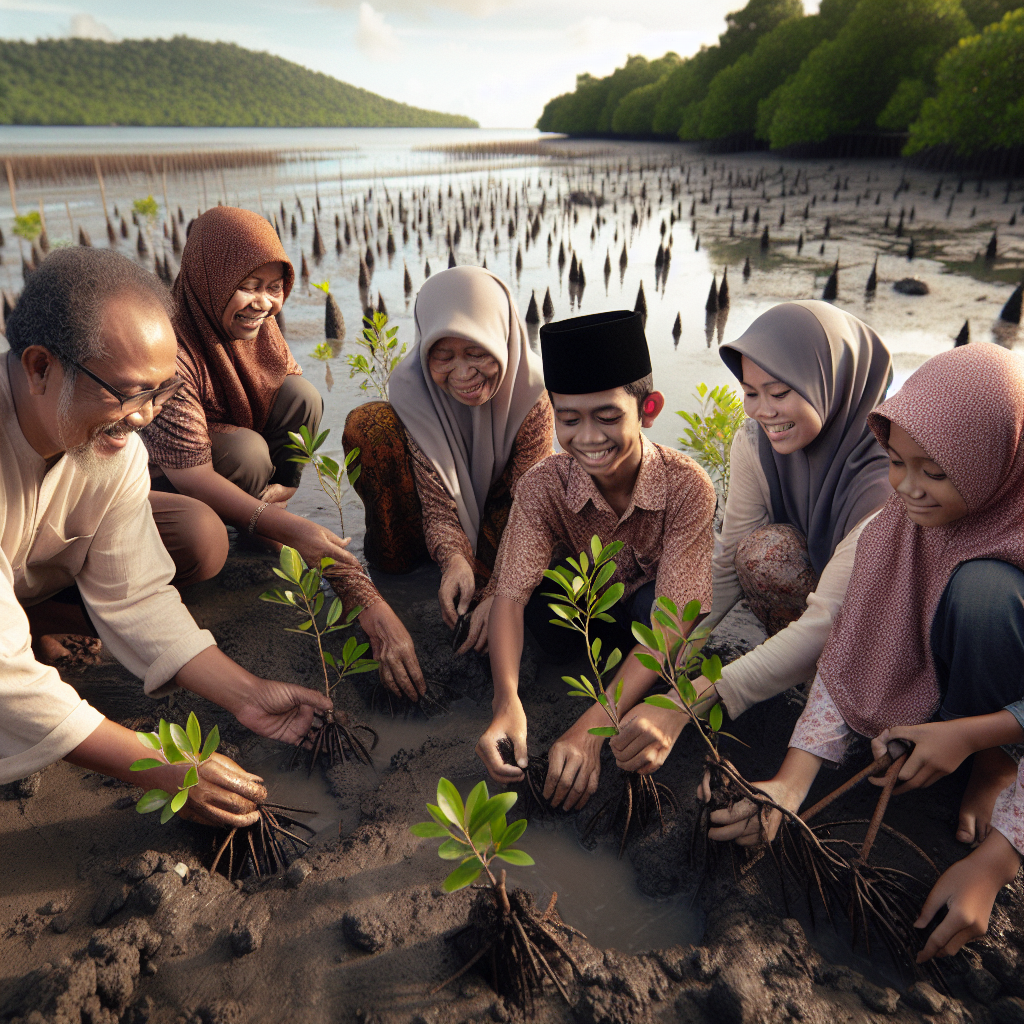Indonesian Family Embraces Mangrove Planting to Combat Climate Change
Indonesian Family Embraces Mangrove Planting to Combat Climate Change
Introduction
In a remarkable grassroots effort, an Indonesian family has taken a proactive stance against climate change by engaging in mangrove planting. This initiative not only aims to restore coastal ecosystems but also serves as a model for sustainable environmental practices.
The Initiative
The family, residing in a coastal village, has dedicated their efforts to planting mangroves, which are crucial in combating climate change due to their ability to absorb carbon dioxide and protect shorelines from erosion.
Key Benefits of Mangrove Planting
- Carbon Sequestration: Mangroves are highly effective at absorbing carbon dioxide, making them vital in the fight against global warming.
- Coastal Protection: These plants act as natural barriers, reducing the impact of storm surges and preventing coastal erosion.
- Biodiversity Support: Mangroves provide a habitat for a wide range of marine and terrestrial species, promoting biodiversity.
Community Involvement
The family’s initiative has inspired local community members to participate, fostering a collective effort towards environmental conservation. This collaboration highlights the power of community-driven action in addressing global challenges.
Challenges and Future Prospects
Despite facing challenges such as limited resources and the need for continuous maintenance, the family remains committed to expanding their mangrove planting efforts. Their dedication underscores the potential for small-scale initiatives to make a significant impact.
Conclusion
The Indonesian family’s mangrove planting initiative exemplifies how individual and community actions can contribute to combating climate change. By restoring vital ecosystems and engaging local communities, they are paving the way for sustainable environmental practices that can be replicated globally.




































